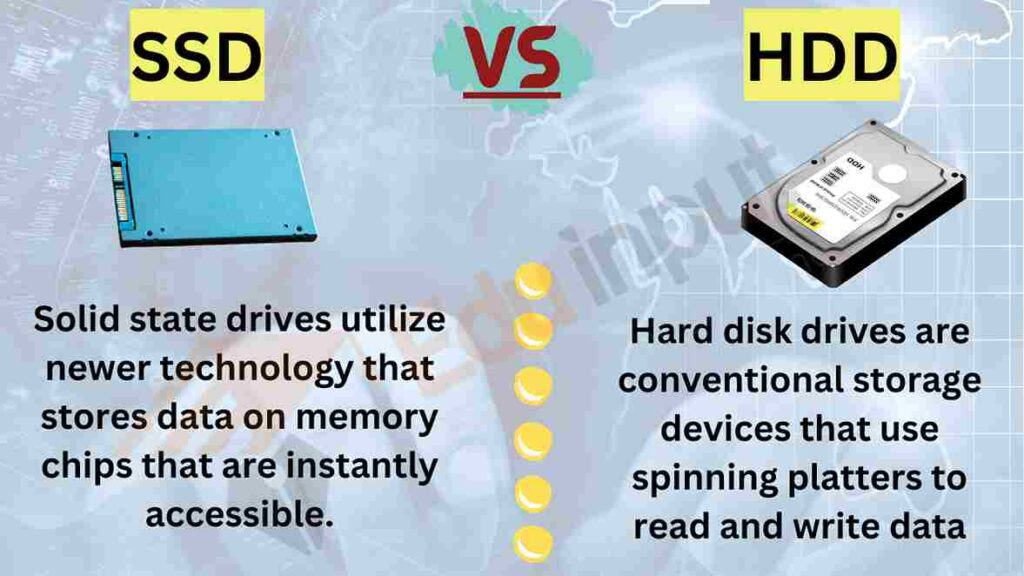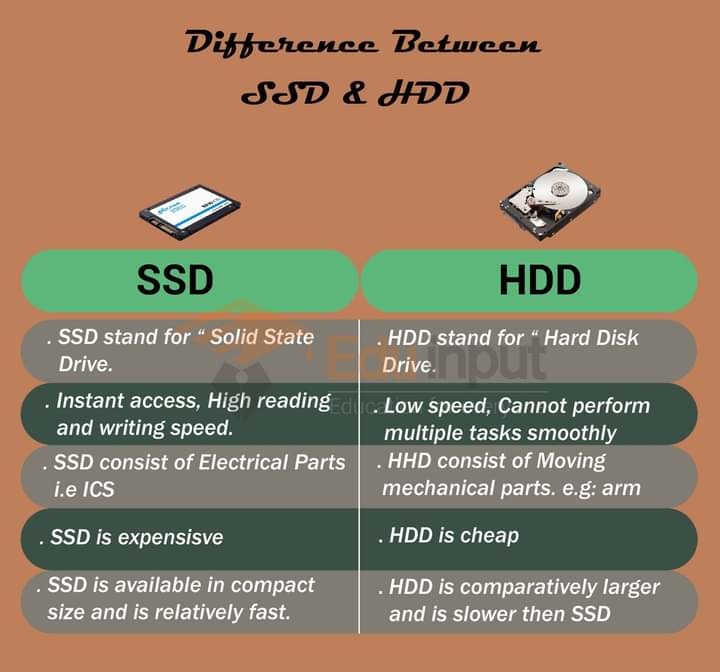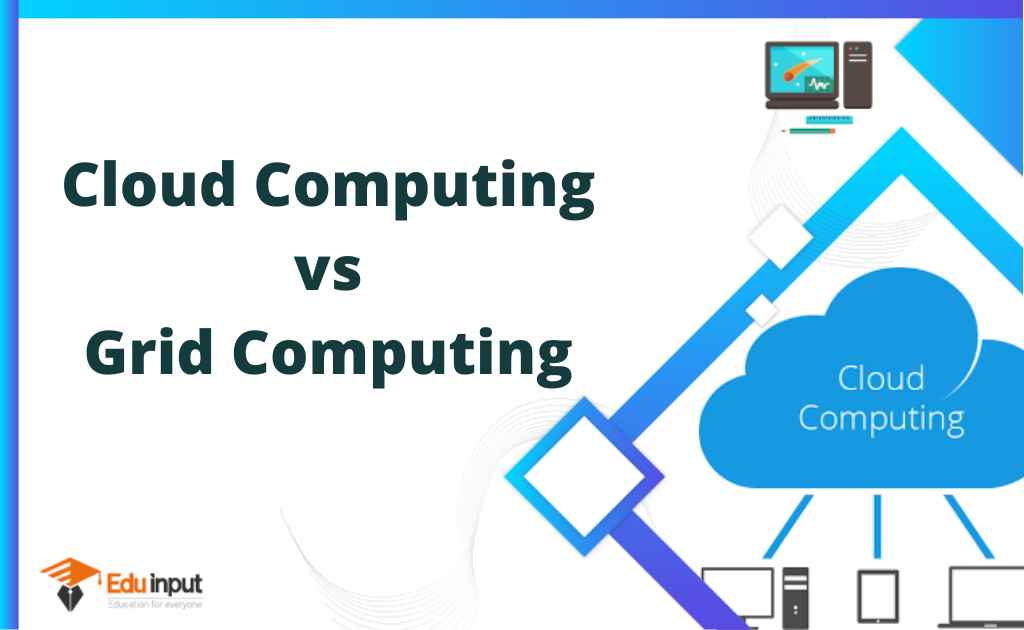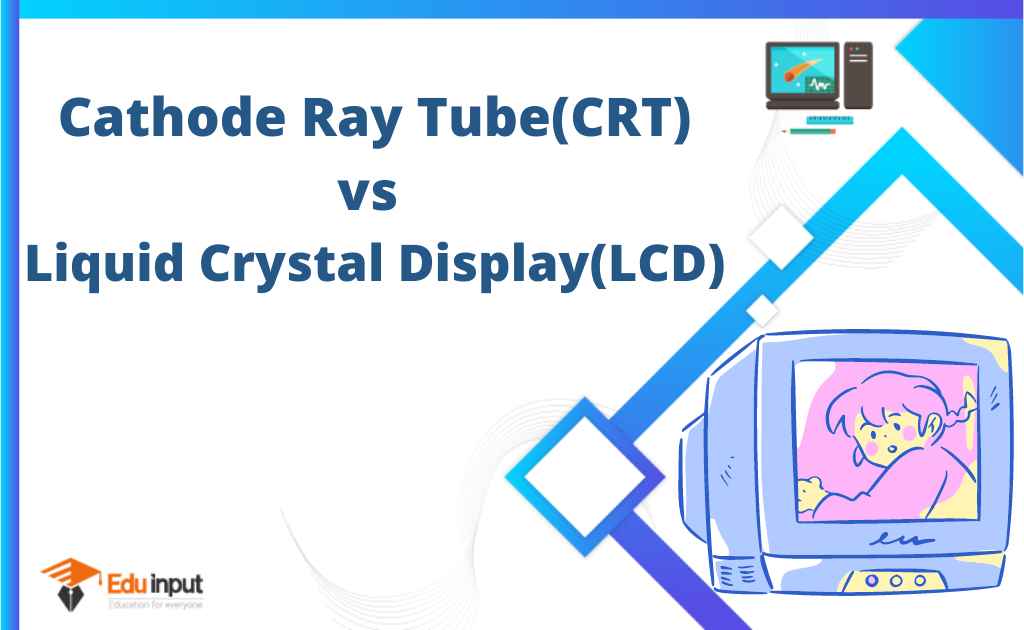Difference Between SSD and HDD
SSD vs HDD
The primary difference between a solid-state drive (SSD) and a hard disk drive (HDD) lies in the way data is stored and retrieved. HDDs use mechanical spinning disks and a movable read/write head to access data, whereas SSDs use memory chips.

In this article, we will discuss the differences between SSD and HDD.
Difference Between SSD and HDD
The main differences between SDD and HDD are given below:
| Features | SSD | HDD |
|---|---|---|
| Full Form | SSD is short for Solid State Drive. | HDD is short for Hard Disk Drive. |
| Data Storage | SSDs are available in 2.5″, 1.8″, and 1.0″ sizes, providing more space in computers, particularly desktops, and servers. | hard disk drives use spinning disks to store data. |
| Access Speed | SSDs generally have very fast access times due to the lack of moving parts. | HDDs have slower access times due to their mechanical components. |
| Durability | SSDs are generally more durable than HDDs because they lack moving parts that can fail over time. | HDDs are more prone to failure and data loss due to their mechanical components. |
| Power Consumption | Low power consumption | High power consumption |
| Noise Level | Silent operation due to lack of moving parts | Audible spinning noise during operation |
| Capacity | Generally lower capacity than HDDs | Higher capacity options available |
| Cost | More expensive per GB | Less expensive per GB |
| Components | An SSD is a memory chip with no moving parts, made up of ICs with an interface connector, and has three primary components: controller, cache, and capacitor. | The HDD has a motor-driven spindle holding flat, magnetic-coated platters with read-and-write heads on top, all enclosed in a metal casing. |
| I/O Operations | SSDs are capable of supporting a higher number of I/O operations per second. | HDDs have a lower capacity for supporting I/O operations per second (IOPS) compared to SSDs. |
| Size | Hard disk drives are typically available in 3.5″ and 2.5″ sizes for desktop and laptop computers. | SSDs are available in 2.5″, 1.8″, and 1.0″ sizes, providing more space in computers, particularly desktops and servers. |

SSD vs HDD speed
Hard disk drives (HDDs) have a copy speed range of 30 to 150 MB per second (MB/s), whereas standard solid-state drives (SSDs) can achieve the same action at speeds of 500 MB/s. The latest NVME SSDs can even reach incredible speeds of 3,000 to 3,500 MB/s.
For example, if you were to transfer a 60 GB movie using an SSD, it would take less than 10 seconds. However, if you were to use a hard disk, the transfer would take at least two minutes.
SSD vs HDD Reliability
SSDs are more reliable than HDDs because they don’t have moving parts, are less prone to data loss due to bad sectors, and are less affected by data fragmentation.

 written by
written by 





Leave a Reply